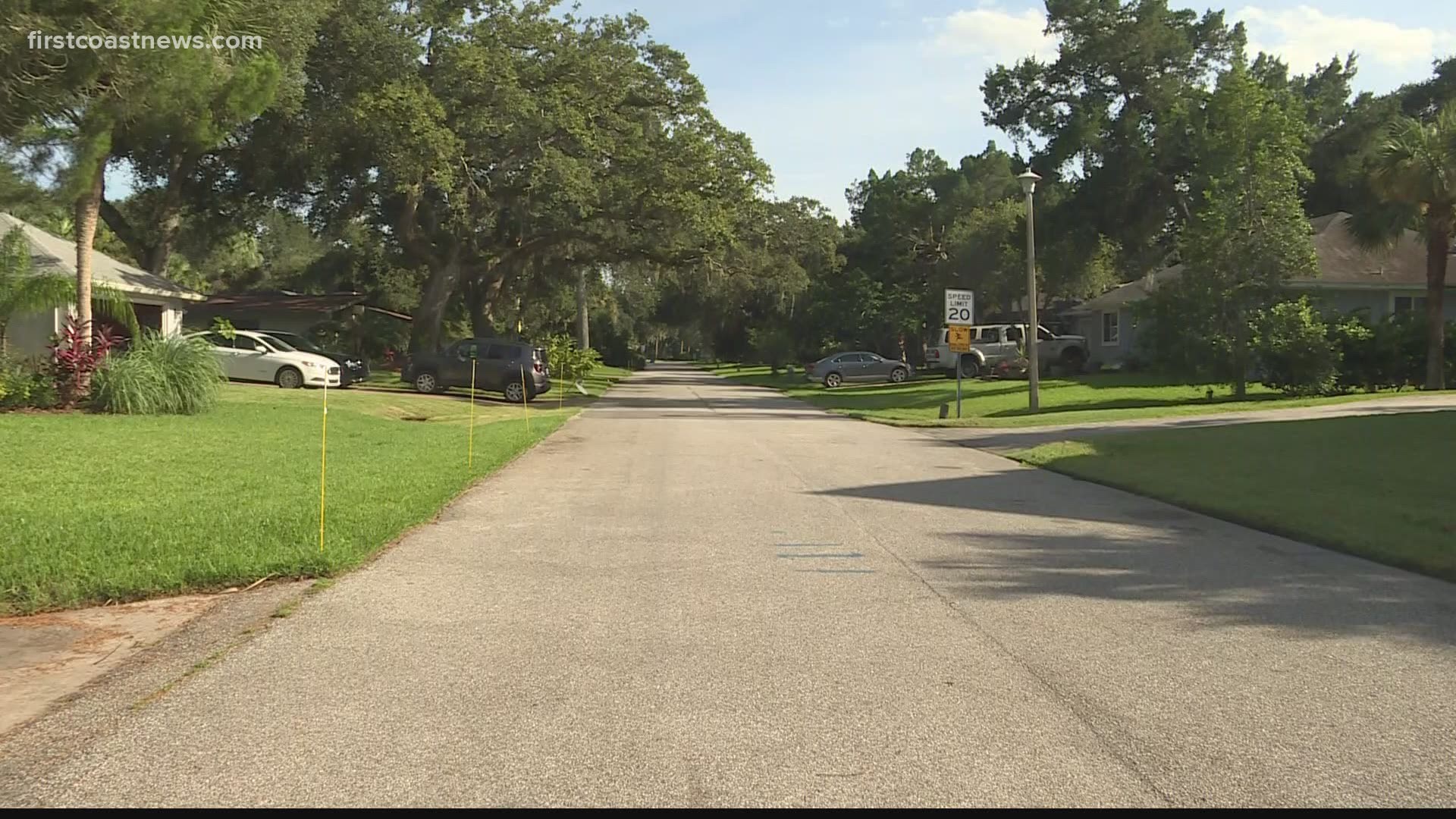ST. AUGUSTINE BEACH, Fla. — Flooding in a small neighborhood in St. Augustine Beach has caught the eye of the state legislature.
The legislature and Gov. Ron DeSantis have signed off to give the Ocean Walk neighborhood $694,000 to study and fix the flooding woes there.
"We were thrilled," said Karen Kempler. She is happy to hear the state will help pay for a solution to keep the neighborhood from flooding again like it did last summer.
One hard rainstorm flooded streets and yards.
"We were one of 20 neighborhoods in Florida that got funding under this sea-level rise initiative," Kempler said.
However, other neighbors told First Coast News they feel it’s more taxpayer money down the drain.
A couple of years ago, a few neighbors in Ocean Walk had an erosion issue with a drainage ditch behind their homes. The City of St. Augustine Beach’s fix was to fill in the drainage ditch with dirt and install a drainage pipe in its place with only a few openings. That reportedly cost $425,000.
After that project, residents said their neighborhood saw flooding as they had never seen.
"For the rain we got, it was far too much flooding," Robert Vignato said at the time.
Another neighbor told First Coast News: "[It's] unprecedented, and the only thing that's changed is[the city] filled the ditch in."
The neighborhood rallied and asked the city to address the flooding. Many of the residents blamed the city for filling in a drainage ditch with a much smaller drainage pipe.
"I figured, let’s go talk to the state about it because I felt it was much bigger than the City of St. Augustine Beach project," City Commissioner Dylan Rumrell said.
Now, the governor has just signed off on a bill that gives the city $694,000 to study and solve Ocean Walk’s water woes. Some of Kempler’s neighbors say it doesn't make sense to spend more money to fix a problem that wasn't a problem until the city removed the drainage ditch.
First Coast News asked Rumrell, "Do you think it could be as simple as digging out the ditch again?"
"I don’t know. That’s a great question," Rumrell replied. "And I’m sure the engineers will come back and say, 'Here’s where we think the issues may be. Here's what you can do.'"
"We feel that filling in the ditch and putting a pipe in did exacerbate our problem, but even prior to filling that in, several homes did flood during the hurricanes of 206 and 2017," Kempler explained.
Kempler said the neighborhood is low-lying. Her home is eight feet above sea level.
So she welcomes a new study, from a different engineer, to address the neighborhood’s whole problem.
"They have promised us if part of the problem is that pipe, then they will do something about it," Kempler said.
"I'm not an engineer," she continued, "but I am a scientist, so I try to look at things in a logical way. To me, it seems we're proceeding logically."
"I feel good about this because they're going to look at everything," she said.

